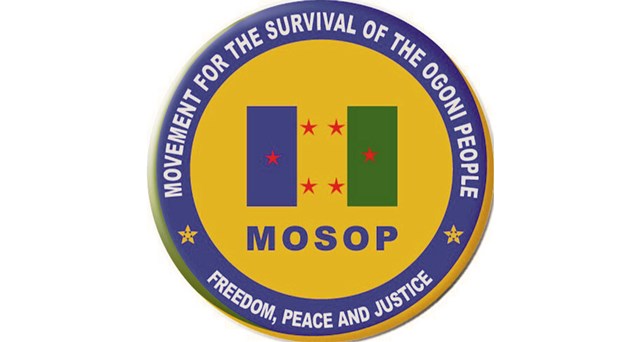Health
Natural Health-Avoid Red Wine Teeth This Holiday
Christmas and New Year holidays are a period of spend ing time with family, and sipping red wine at parties—and this can lead to teeth staining. Red wine is a known culprit for teeth discoloration, but don’t be afraid just yet: there are simple ways to avoid a purplish smile. Here, we lay out the background and facts on red wine stains as well as tips for reducing discoloration, so you can smile confidently at that long-awaited holiday party, pose in pictures with your pearly whites, and still enjoy that glass of good wine.
So, does red wine stain your teeth? Even other colored alcoholic drink does as well. If the answer is yes then you shouldn’t worry if you’re maintaining excellent oral health care habits and consuming red wine in moderation. When looking into why red wine stains, it’s worth looking at what kind of stain it causes. According to the American Dental Association, red wine stains are considered extrinsic stains, which means the stain results from colored compounds contacting your enamel (intrinsic stains, conversely, are stains that occur inside the tooth). In other words, like tea or coffee, red wine stains because of the intense colored pigments interacting with the outside of your teeth.
To break down the science, when you drink red wine, your teeth are encountering three threats, according to an interview with the head dentist of Rutgers Health University Dental Associates. First, there are anthocyanins, which are the pigments in grapes that give red wine its purplish color. Then there are tannins (which come from the skins, seeds, and stems) that can bind the colored pigment to your teeth. The third threat is the acidity found in wine, making your enamel more porous, thus causing the wine stain to stick. Therefore, it’s essential to maintain healthy enamel care and prevent plaque buildup so that the wine pigment has a more challenging time sticking to your teeth.
Still, there’s no need to panic over switching to white wine for your holiday gathering. It’s still a great choice and also has known health benefits. According to the American Heart Association, red wine is linked to benefits like lessening heart disease symptoms. That being said, it’s always best to consume alcohol in moderation.
Here are a few methods to keep in mind at that holiday party or any time you decide to sip a glass of red.
1. Brush and floss beforehand: Stains cling to the film of plaque on your teeth, so a thorough brushing and flossing before heading into your holiday event is a good personal rule to follow. By adequately removing new plaque biofilm and food residue from your teeth before an indulgent meal, you can minimize your chances of staining. Cleaning your teeth on this type of schedule also cuts down your tooth decay and gum disease risk.
2. Rinse your mouth afterward with water: To help prevent red wine from lingering on your teeth, take a swig of water, which is generally a good habit while consuming alcohol to keep you hydrated. You may think it makes sense to brush the wine off your teeth, but as Rutgers Health University Dental Associates recommends, you should avoid brushing your teeth right away if you’ve eaten an acidic food or drink. The acid weakens tooth enamel, and brushing too soon can remove it. If you do want to brush, wait at least 30 minutes.
3. Eat as you drink: Consider munching on cheese and vegetables as you drink; these foods can act as a barrier to the acid in red wine. That’s because foods that stimulate saliva can help reduce the effects of acid and restore minerals to areas of teeth, according to the University of Rochester Medical Center. Go with particularly fibrous foods low in sugar, such as broccoli, celery, or hard cheeses, all of which can stimulate saliva flow and naturally scrub away drink stains.
4. Use whitening toothpaste – Whitening toothpaste works to remove surface stains on your teeth that naturally occur over time and prevent new stains from forming. It’s a good idea to switch to whitening toothpaste if you’re concerned about keeping your smile bright at any time of year.
By Kevin Nengia
Health
‘How Micro RNA Research Won Nobel Prize’
Two United States scientists who unraveled the human micro RNA have won the Nobel Prize in Physiology or Medicine 2024.
Victor Ambros and Gary Ruvkun won the coveted prize for their work on microRNA as their discoveries help explain how complex life emerged on earth and how the human body is made up of a wide variety of different tissues.
MicroRNAs influence how genes – the instructions for life – are controlled inside organisms, including humans.
Every cell in the human body contains the same raw genetic information, locked in our DNA.
However, despite starting with the identical genetic information, the cells of the human body are wildly different in form and function.
The electrical impulses of nerve cells are distinct from the rhythmic beating of heart cells. The metabolic powerhouse that is a liver cell is distinct to a kidney cell, which filters urea out of the blood.
The light-sensing abilities of cells in the retina are different in skillset to white blood cells that produce antibodies to fight infection.
So much variety can arise from the same starting material because of gene expression.
The US scientists were the first to discover microRNAs and how they exerted control on how genes are expressed differently in different tissues.
The medicine and physiology prize winners are selected by the Nobel Assembly of Sweden’s Karolinska Institute.
They said: “Their groundbreaking discovery revealed a completely new principle of gene regulation that turned out to be essential for multicellular organisms, including humans.
“It is now known that the human genome codes for over 1,000 microRNAs.”
Health
WHO Begins Regulation On Antibiotic Waste
The World Health Organisation (WHO) has begun acting to curb effects of antibiotic pollution.
The new guidance on wastewater and solid waste management for antibiotic manufacturing sheds light on this important but neglected challenge ahead of the United Nations General Assembly (UNGA) High-Level Meeting on antimicrobial resistance (AMR) taking place on 26 September 2024.
The emergence and spread of AMR caused by antibiotic pollution could undermine the effectiveness of antibiotics globally, including the medicines produced at the manufacturing sites responsible for the pollution.
Despite high antibiotic pollution levels being widely documented, the issue is largely unregulated and quality assurance criteria typically do not address environmental emissions. In addition, once distributed, there is a lack of information provided to consumers on how to dispose of antibiotics when they are not used, for example, when they expire or when a course is finished but there is still antibiotic left over.
“Pharmaceutical waste from antibiotic manufacturing can facilitate the emergence of new drug-resistant bacteria, which can spread globally and threaten our health. Controlling pollution from antibiotic production contributes to keeping these life-saving medicines effective for everyone,” said Dr Yukiko Nakatani, WHO Assistant Director-General for AMR ad interim.
Globally, there is a lack of accessible information on the environmental damage caused by manufacturing of medicines.
“The guidance provides an independent and impartial scientific basis for regulators, procurers, inspectors, and industry themselves to include robust antibiotic pollution control in their standards,” said Dr Maria Neira, Director, Department of Environment, Climate Change and Health, WHO. “Critically, the strong focus on transparency will equip buyers, investors and the general public to make decisions that account for manufacturers’ efforts to control antibiotic pollution.”
Health
Kebbi Harmonises Doctors’ Salaries To Curb Brain Drain
In a concerted effort to curb brain drain, the Kebbi State Government has harmonised medical doctors’ salaries to be at par with their colleagues in the federal government’s tertiary health facilities.
Kebbi State Commissioner for Health, Musa Inusa-Isma’il, disclosed this at the handing over of ambulances to the state-owned health facilities at the Ministry of Health in Birnin Kebbi yesterday.
Inusa Isma’il, according to a statement by Ahmed Idris, the Chief Press Secretary to the governor, said the essence of the harmonisation was to retain the existing medical doctors and attract more to the services of the state.
According to him, the doctors across the state had already started enjoying the new salaries from August 2024.
He said the release of the vehicles was in fulfilment of Governor Nasir Idris’ promise to uplift health care services in the state.
“His Excellency said I should inform you, the beneficiaries of this gesture, that the vehicle should be strictly used for the intended purpose. It should not be used for anything else.
“If there is no referral case, each of the vehicles must be parked at the hospital by 6 pm. The governor said you should warn your drivers against reckless driving as well as violating the instructions.
“We should also do everything possible to reciprocate the gesture by working according to the terms and conditions attached,” he advised.
The benefiting health facilities included Sir Yahaya Memorial Hospital, Birnin Kebbi; State Teaching Hospital, Kalgo; General Hospital, Argungu; General Hospital, Yauri; General Hospital, Zuru; and General Hospital, Bunza.
In his speech, the permanent secretary of the ministry, Dr Shehu Koko, recalled that the ambulances were handed over to the ministry last Friday by the governor for the onward handover to the benefiting hospitals.
He observed that the ambulances would go a long way in improving the referral system in the state, adding that delays in reaching the secondary and tertiary facilities would be eliminated.
The permanent secretary attributed the high rate of maternal mortality in the country to delays in getting to the health facilities for proper medical care.
“We believe with the provision of these ambulances, part of the gaps we have in our referral system will be addressed, whereby patients who require secondary healthcare could be easily transported to secondary and tertiary health centres, where they can get such help,” he said.
In a goodwill message, Commissioner for Information and Culture Alhaji Yakubu Ahmed expressed gratitude to the governor for the support he has given to the ministry to excel.
While advising the beneficiaries to use the vehicles judiciously, the commissioner advised that services and maintenance of the vehicles must be prompt to derive the maximum benefits from the vehicles.
The commissioner also highlighted some achievements recorded by the government in the last year, including beautification of the state capital, completion of a multimillion-naira ultramodern state secretariat, road construction, construction and renovation of classrooms and upgrading of some health facilities, among others.
-
Business2 days ago
No Mandate To Revive National Carrier – Aviation Ministry
-

 News2 days ago
News2 days agoOgoni Day: MOSOP Unites, Demands Share from OML 11
-

 Politics2 days ago
Politics2 days agoAPP Wants INEC To Conduct By-Election To Fill Rivers Assembly Vacant Seats
-
Niger Delta2 days ago
We’re Upgrading Tourism Sites Across C’River – Otu
-

 Niger Delta2 days ago
Niger Delta2 days agoKalabari Media Forum Hails Recognition Of Dokubo Asari As Amayanabo
-

 News2 days ago
News2 days agoIn 2025, God’ll Crush Rivers Enemies – Fubara …Prays For Peace, Progress Of State …As He Attends Crossover Service In Opobo
-
News2 days ago
Old Students’ Association Marks Anniversary
-
Rivers2 days ago
Security: Experts Task Govt On Support For Paramilitary Organizations

